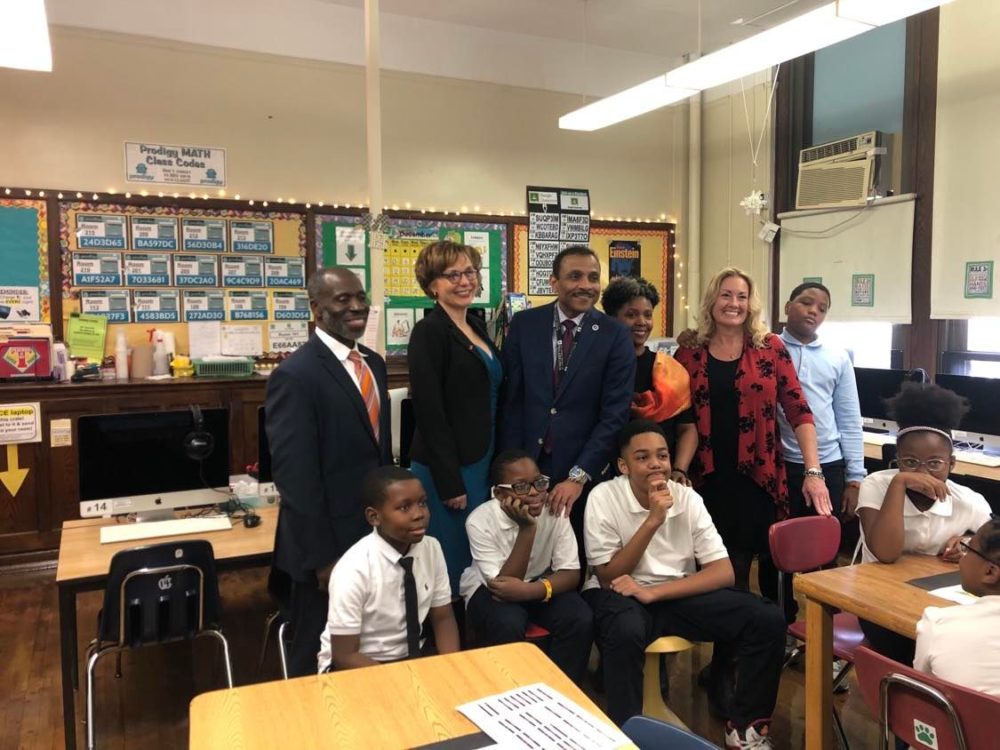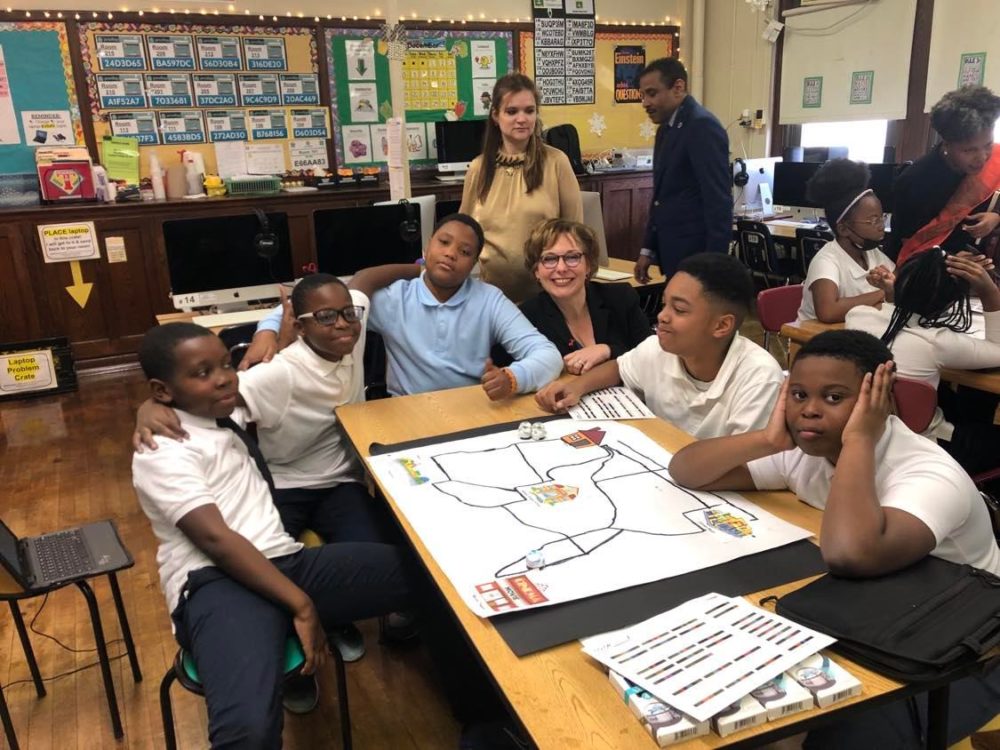Here at Technical.ly, we like to think they go pretty hand in hand. But the students at William Rowen Elementary are being taught that they really do connect.
During a Monday visit to the West Oak Lane school, this reporter heard from fifth graders who wrote a fictional story and then designed a poster and code to make Ozobots — bulb-like bots with blinking lights and wheels behind a transparent case, smaller than an elementary schooler’s palm — follow the path of the story they wrote. The students said they had fun working on the project for about two weeks, first with writing the story and then applying the code.
Mitzi Brown, Rowen’s digital literacy teacher, said the students started off learning to code through basic computer programs and have now moved on to these projects.
“The minute my students start learning about computer programming, they light up with excitement,” said Brown. “When I first introduced Ozobots and explained what they were going to be doing with the color codes and having them move, they were so thrilled and eager to learn, every single grade level in our school.”
This show-and-tell event was part of today’s kickoff event for Computer Science Education Week, a national effort by code.org that runs now through Dec. 11. The goal of the week is to recognize local examples of computer science education and to prompt more conversations about why it’s important. This is the 12th year the School District of Philadelphia has participated.

Districtwide, schools and student will be participating in Hour of Code, which is designed to expose young students to coding. The School District of Philadelphia is also tracking the number of schools and students participating in Hour of Code this week through a dashboard that also collects feedback from the students in different age brackets.
Philly’s new-as-of-summer-2022 superintendent, Tony B. Watlington, said it’s a big deal that students are being exposed to computer science from a young age because there are thousands of jobs available in the field that have good salaries.
Even if there’s not a one-to-one result of their participation in the week’s programming, exposure could mean interest, which could mean pursuit later on.
“Computing occupations are the number-one source of all new wages in the US, and we want those occupations to be filled with students right here from the School District of Philadelphia,” Watlington said, echoing sentiments shared by STEM educators elsewhere in the city. (Here’s a bit more on how to quantify tech employment’s local impact.)
Melanie S. Harris, chief information officer with the school district, said students are never too young to be exposed to computer science. About 48,000 students in K-8 schools across the district are being prepared for high school and beyond in their digital literacy classes.
William Rowen’s principal, Dr. James Murray, said it was important for him to provide a space for his students to see scientists and engineers who look like them. Part of that effort is the school’s Quantum STEAM Lab, developed in partnership with (and via funding from) industry and higher ed partnerships.

“We need more people of color to go into science and technology career fields,” he said of the white male-dominated tech industry. “And if we’re going to encourage this type of growth, it needs to start happening at the elementary level. Computer science education is important to meet the national need for a STEM-smart workforce to address current and future demands. “
Harris said the way her team has helped to expand digital literacy classes in schools across the district is by talking to principals about why it’s important to make time for digital skills the way they would for art or music. This curriculum helps student understand that technology is part of everything else they’re learning: “That’s our real goal, is that technology is not separate from science, English, math, social studies — that it’s all in agreement together.”
Even outside of school, coding isn’t so separate from every day life, according to Brown.
“One of the biggest things that I do is I remind them when they get discouraged, I say, coding is just like real life,” the educator said. “You’re gonna go through problems, you’re going to have to come up with a solution and figure it out.”







